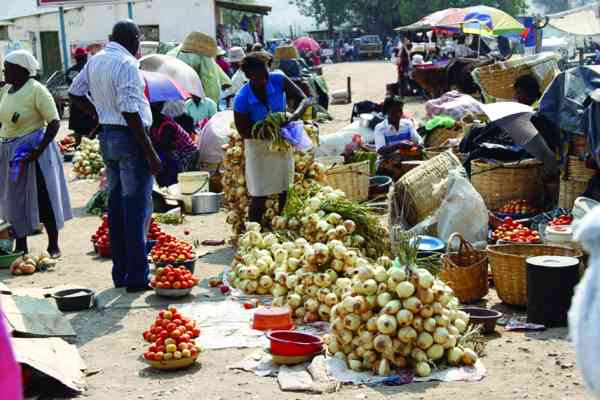
MILLIONS of adult Zimbabweans have been forced into the informal business sector amid calls for authorities to support them as the formal market continues to decline, liberal think-tank Coalition for Market and Liberal Solutions (Comaliso) has said.
According to the Zimbabwe National Statistics Agency, almost 86% of Zimbabwe’s adult population is in the informal sector, mostly due to tight economic circumstances that have decimated “formal” industry.
In a statement, Comaliso said disruption of consumer preference has motivated central business district (CBD) real estate investors to partition shop spaces, hence the rapid emergence of lettable partitioned mall retail unit (LPMRU) shopping culture.
“A new generation of retail entrepreneurs now prefers small compartments as a direct response to property owners who convert shops into retail cubicles generally not more than 20m2 each.
“Around 600 000 urban young people have taken up these spaces in Zimbabwe’s towns. Whether or not to classify them as ‘informal’ or ‘unemployed’ becomes a matter of semantics.
“To hallucinate that this is a ‘passing phase’ and that departmental stores like Haddon & Sly, H.M. Barbours, Meikles and Bradlows will resurrect is nothing but self-delusion.”
Comaliso said the rapid assessment of Interests survey they conducted revealed that almost 60% of LPMRUs employ or are operated by women.
The survey randomly targeted malls in Harare, Bulawayo, Mutare, Gweru and Chinhoyi with 2 000 questionnaires over a four-week period.
- Government backtracks on title deeds
- ‘60% of Zim properties valueless’
- Zanu PF in title deeds vote-buying storm
- ‘Absence of property rights eroding investor confidence’
Keep Reading
“Almost 80% of the respondents expressed displeasure and dissatisfaction with shop licensing and tax return processes.
“Councils must not apply the same rules used on hyper stores. LPMRUs must be allowed to pay licence fees quarterly like we do with Zinara [Zimbabwe National Road Administration] discs,” the respondents said.
“This should enable them to spread the fees over a longer period rather than the harsh one-off annual payment. Besides, municipal police and ZRP [police officers] make unnecessary corruptive demands on LPMRUs with no licence.
“This behaviour is unacceptable. Zimra [Zimbabwe Revenue Authority] presumptive tax system is also a burden to LPMRUs. While Comaliso agrees that Zimra needs to widen its tax band on ‘informal’ sectors, again we find the rates too harsh, thus we propose that payments be made quarterly while tax clearance should be expedited to make it easier for LPMRUs to source goods and bid for public tenders.”
Comaliso also revealed that 90% of the respondents expressed dissatisfaction over how near impossible it was for informal entrepreneurs to access loans due to demands for collateral, financial records and high interest rates.
“Comaliso feels that the exponential rise of LPMRUs and informal business for that matter demands the Reserve Bank of Zimbabwe, Bankers Association of Zimbabwe and other financial institutions remodel loan conditions to suit latest trends.
“Financial institutions cannot continue to rely on archaic ‘payslips’ because 80% of gainfully ‘employed’ adult Zimbabweans have never had a payslip.”










